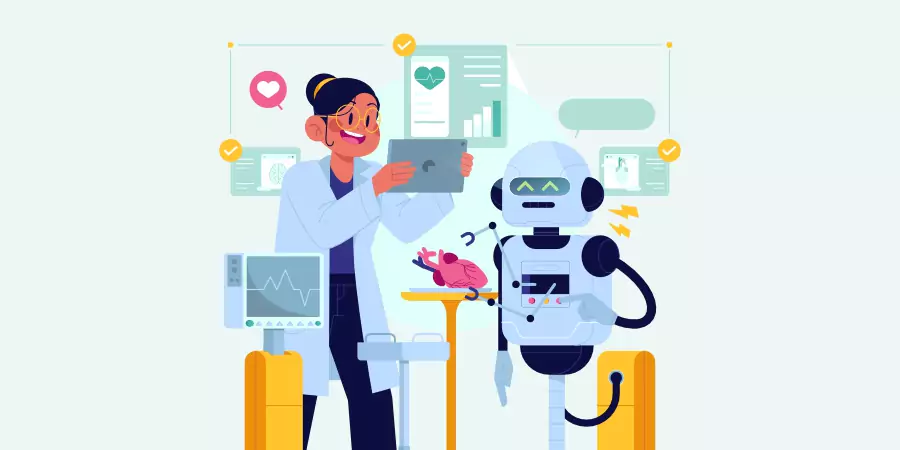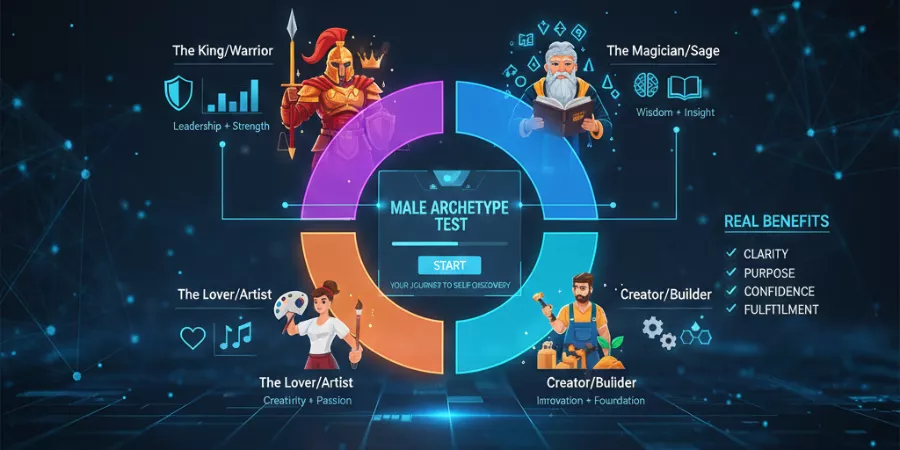Introduction
The healthcare industry is undergoing a digital revolution known as Healthcare 4.0, which integrates smart technologies such as artificial intelligence (AI), the Internet of Medical Things (IoMT), big data analytics, blockchain, and robotics. This transformation is streamlining operations, enhancing patient care, and making healthcare more efficient, personalized, and accessible. As the industry embraces digitalization, Healthcare 4.0 is set to redefine medical services in ways previously unimaginable.
The Core Technologies Driving Healthcare 4.0
- Artificial Intelligence (AI) and Machine Learning (ML)
AI is at the forefront of Healthcare 4.0, enabling faster diagnostics, personalized treatments, and predictive analytics. AI-driven algorithms can analyze vast amounts of medical data to detect diseases early and recommend the most effective treatment options.
- AI in Diagnostics: AI-powered tools like IBM Watson and Google’s DeepMind help doctors identify diseases such as cancer and neurological disorders with high accuracy.
- Predictive Analytics: AI can analyze patient data to predict health risks, reducing hospital readmissions and improving preventive care.
- Chatbots and Virtual Assistants: AI-driven chatbots assist in patient engagement by answering queries, scheduling appointments, and offering preliminary consultations.
- Internet of Medical Things (IoMT)
IoMT refers to the connected network of medical devices that collect, transmit, and analyze real-time health data. Smart wearables, remote monitoring devices, and connected sensors are enhancing patient care like never before.
- Remote Patient Monitoring (RPM): Devices like smartwatches and biosensors track vital signs, alerting doctors about irregularities.
- Smart Hospitals: IoMT solutions optimize hospital operations by automating processes such as inventory management and equipment tracking.
- Personalized Treatment: IoMT helps doctors tailor treatment plans by continuously analyzing patient data in real-time.
- Big Data and Analytics
The vast amount of healthcare data generated daily requires advanced analytics to extract meaningful insights. Big data technologies assist healthcare professionals in making informed decisions.
- Electronic Health Records (EHRs): Digitized records provide easy access to patient histories, reducing errors and improving efficiency.
- Disease Surveillance: Big data helps track and predict disease outbreaks, as seen in COVID-19 response strategies.
- Operational Efficiency: Hospitals use big data to optimize resource allocation, reduce costs, and enhance patient care quality.
- Blockchain Technology
Blockchain is enhancing healthcare security and transparency by enabling tamper-proof medical records, secure patient data sharing, and fraud prevention.
- Secure Patient Data: Blockchain ensures that patient information remains confidential and cannot be altered.
- Interoperability: It allows seamless sharing of medical records across healthcare providers, improving coordination in patient care.
- Pharmaceutical Supply Chain: Blockchain helps track the authenticity of drugs, reducing counterfeit medicines in circulation.
- Robotics and Automation
The integration of robotics in healthcare is revolutionizing surgery, rehabilitation, and elderly care. Robotic systems enhance precision, reduce human errors, and assist healthcare workers in delivering superior care.
- Robotic Surgeries: Robots like Da Vinci Surgical System allow minimally invasive procedures with increased accuracy.
- Exoskeletons: Assistive robotic devices help paralyzed patients regain mobility.
- AI-Powered Nursing Assistants: Robots assist in routine tasks like patient transport, medication administration, and monitoring vital signs.
The Impact of Healthcare 4.0 on Patient Care
- Enhanced Patient Experience
Healthcare 4.0 enables patient-centric care by providing personalized treatment options, reducing wait times, and ensuring seamless communication between doctors and patients. Telemedicine services allow patients to consult specialists remotely, eliminating geographical barriers.
- Improved Disease Management
With AI and big data analytics, diseases can be diagnosed at an early stage, allowing timely intervention and better management. Wearable devices help patients track their health conditions and follow preventive care measures.
- Cost Reduction in Healthcare
Automated workflows, AI-driven diagnostics, and predictive analytics significantly reduce operational costs, benefiting both healthcare providers and patients. Robotics in surgeries also shortens hospital stays and speeds up recovery.
- Addressing Global Healthcare Challenges
Healthcare 4.0 is playing a crucial role in addressing global healthcare challenges, such as:
- Shortage of Healthcare Professionals: AI-powered systems and telemedicine bridge the gap in remote and underserved areas.
- Managing Pandemics: Smart technologies help in tracking outbreaks, managing hospital resources, and coordinating vaccination drives.
- Elderly Care: Smart home healthcare solutions enable senior citizens to receive medical attention while remaining independent.
Future Trends in Healthcare 4.0
- Digital Twins in Healthcare
A digital twin is a virtual model of a patient’s body that allows doctors to test treatments and predict health outcomes before actual application.
- Augmented Reality (AR) and Virtual Reality (VR) in Medicine
AR and VR technologies are enhancing medical training, improving surgical precision, and offering pain management solutions for patients.
- 5G-Powered Healthcare
5G technology will enable real-time data transmission for remote surgeries, telehealth consultations, and faster medical imaging.
- Personalized and Precision Medicine
Advancements in genomics and AI will lead to highly personalized treatment approaches based on an individual’s genetic makeup.
Conclusion
Healthcare 4.0 is revolutionizing the medical industry by integrating cutting-edge smart technologies. AI, IoMT, big data, blockchain, and robotics are driving efficiency, reducing costs, and improving patient outcomes. As the healthcare sector continues to evolve, embracing these innovations will be crucial in ensuring accessible, high-quality, and sustainable healthcare for all.
The journey towards a smart healthcare ecosystem has only just begun, and the future holds limitless possibilities for innovation and transformation. Organizations that adopt Healthcare 4.0 will lead the way in redefining patient care and medical excellence in the years to come.





